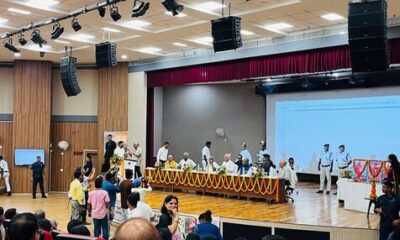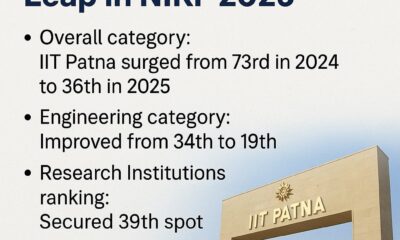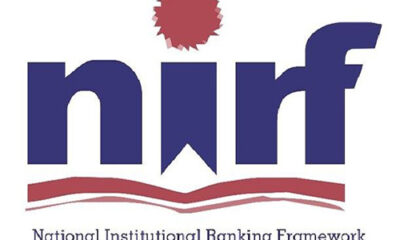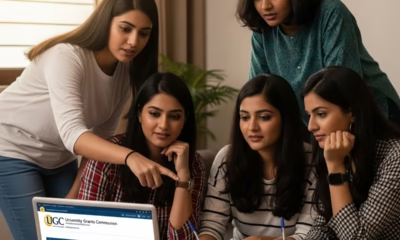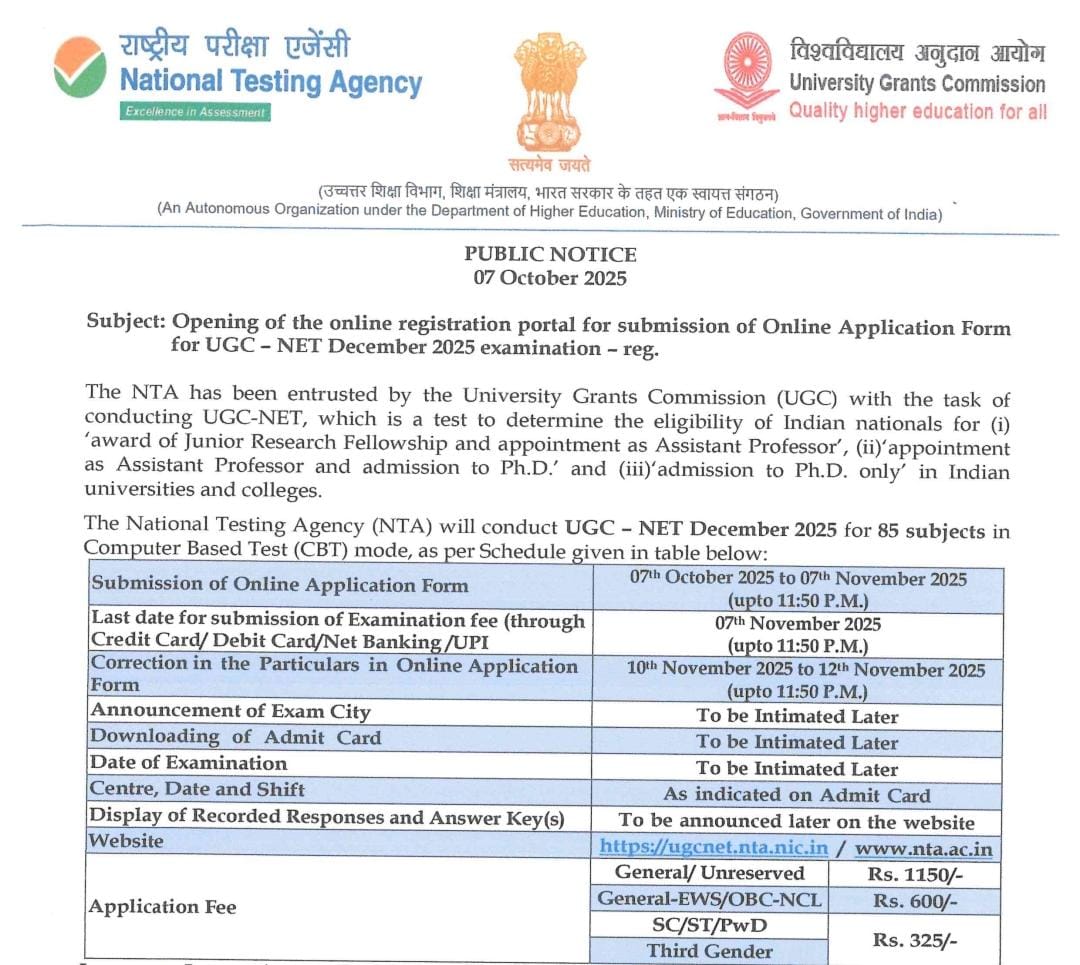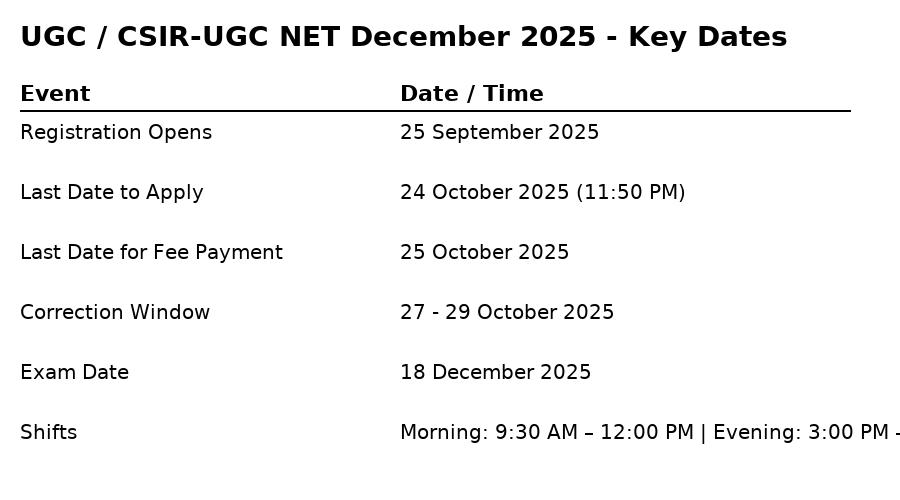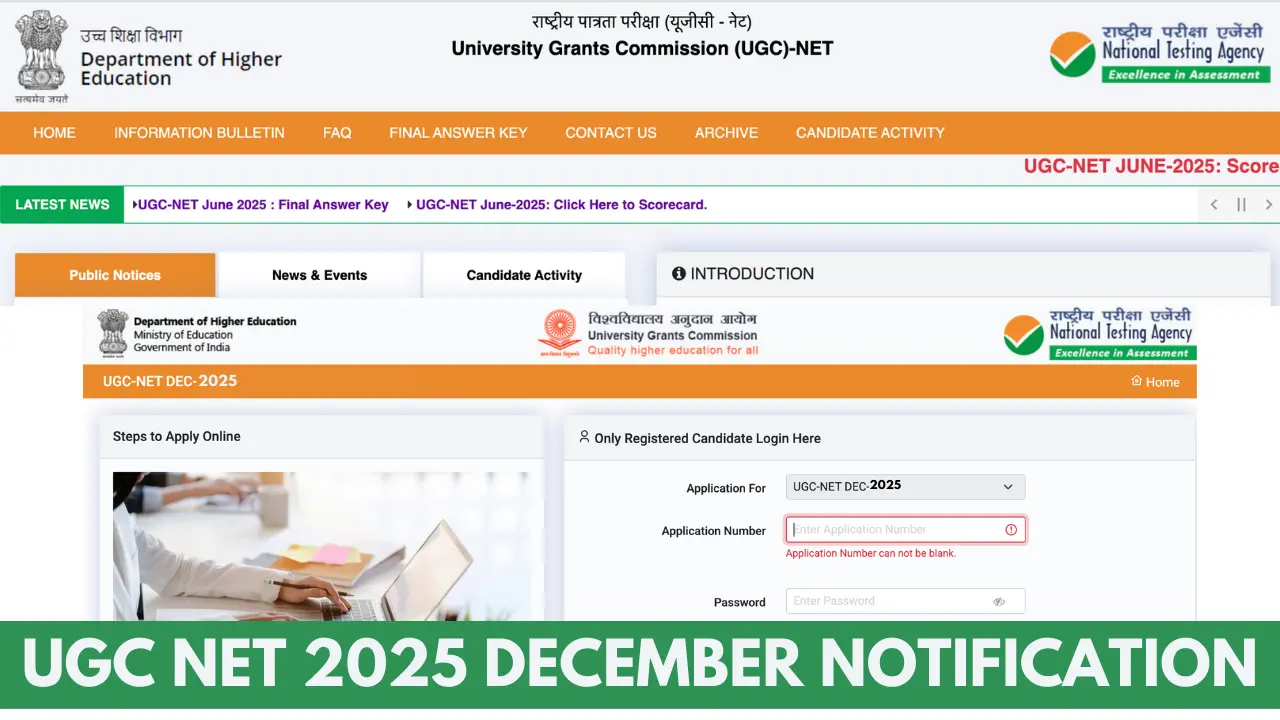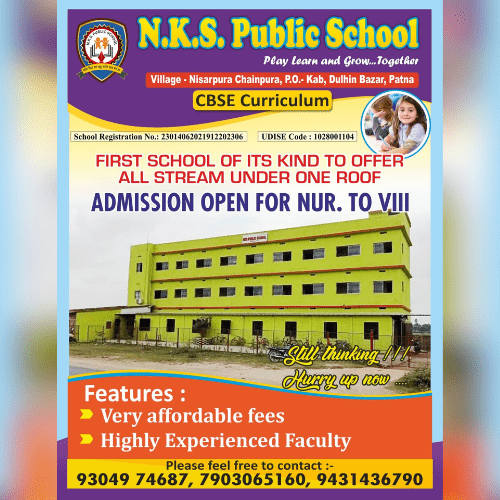Education
NEP 2025 Reshapes Education: Early Research Integration and Multidisciplinary Colleges at the Core
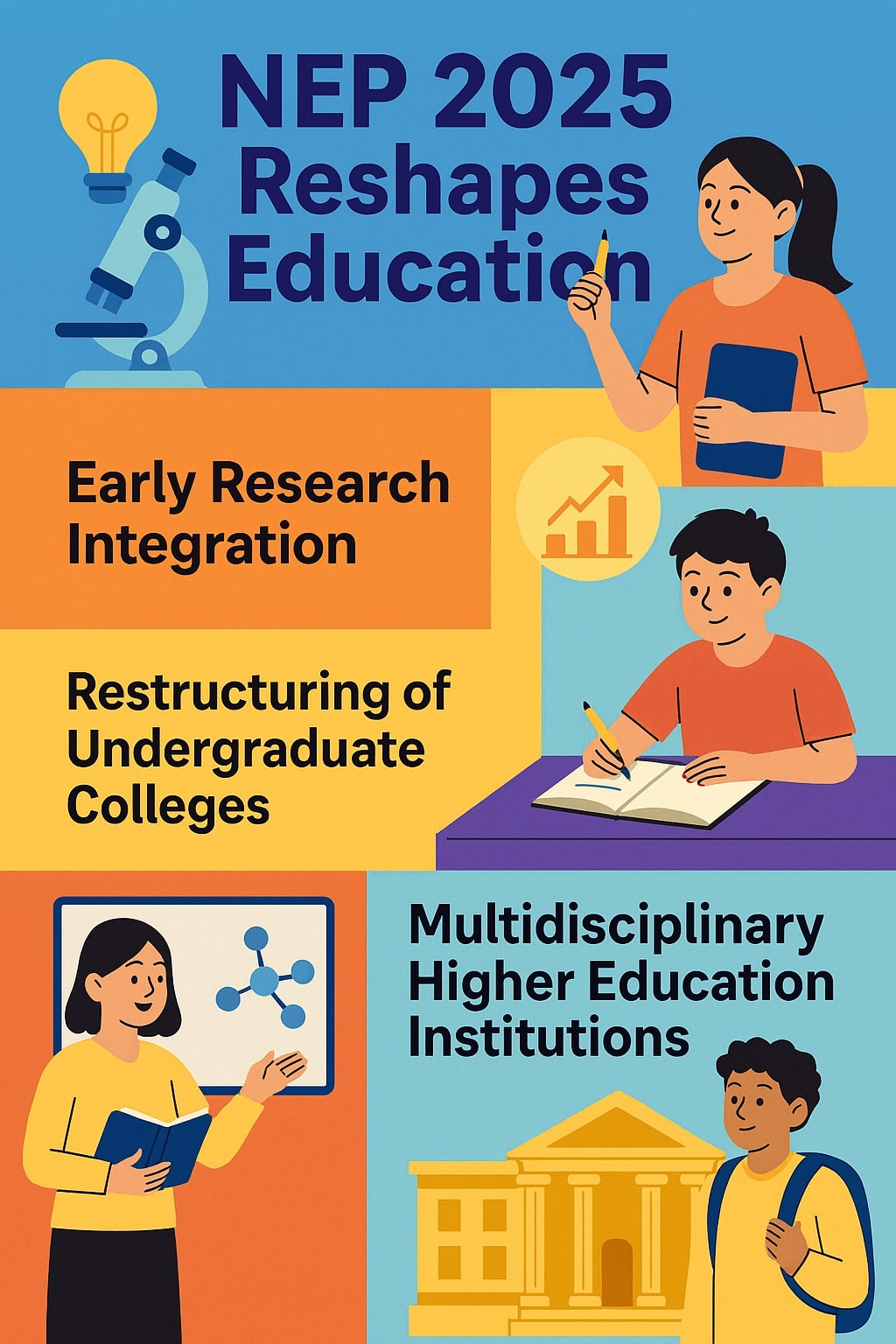
Admissions
UGC-NET December 2025 Notification Released: Registration Open, Exam Scheduled from December 31 to January 7
Education
UGC NET December 2025: Latest Updates on Notification, Registration and Exam Date
Education
UGC NET 2025 December Session Notification
-

 Tech4 months ago
Tech4 months agoGoogle’s Gemini AI Pro Plan for Indian Students: A Game-Changer for Academic Success
-
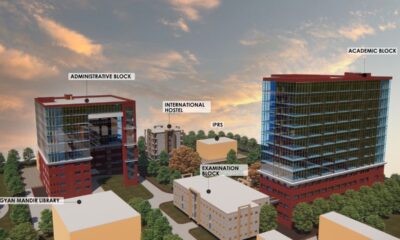
 Bihar4 months ago
Bihar4 months agoPatna University Prepares for Major Relocation
-
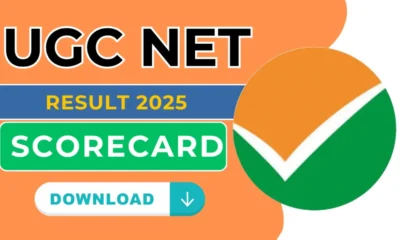
 Results3 months ago
Results3 months agoUGC-NET June 2025 Results: Detailed Breakdown of Candidate Performance
-
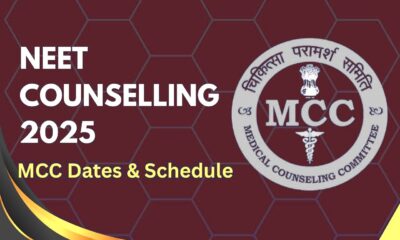
 Admissions3 months ago
Admissions3 months agoNEET UG 2025 Round 1 Counselling Begins Today
-
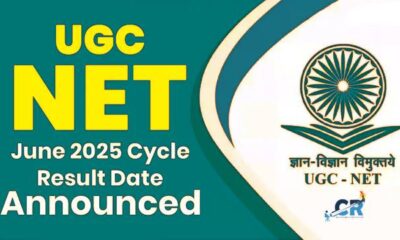
 Results4 months ago
Results4 months agoUGC NET June Result 2025 by NTA, check result date here
-

 Education4 months ago
Education4 months agoCBSE Enhances STEM Teacher Training to Promote Critical Thinking in Classrooms
-

 Education3 months ago
Education3 months agoAI and the Future of Work: Are Half of White-Collar Jobs Really at Risk?
-

 Business3 months ago
Business3 months agoThis is how you dress for a job interview, and land an offer



